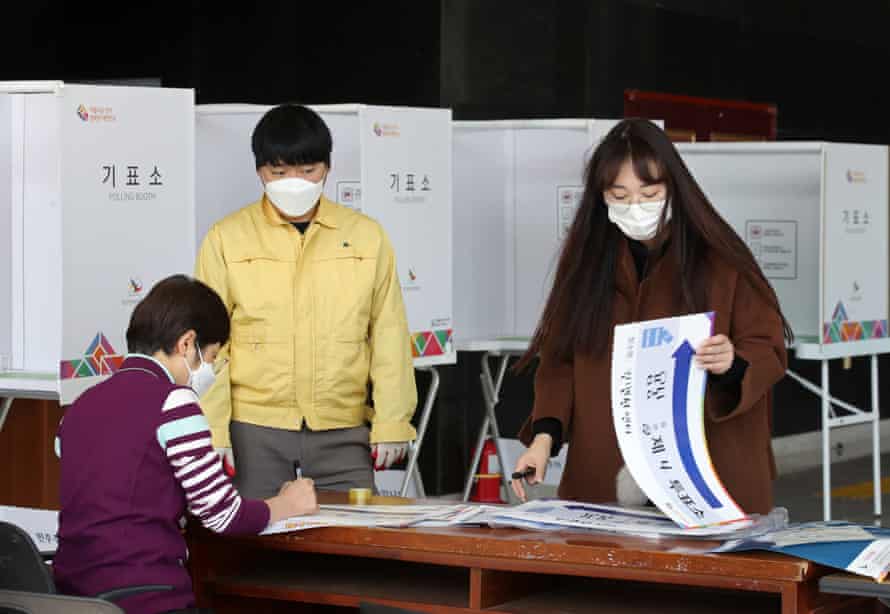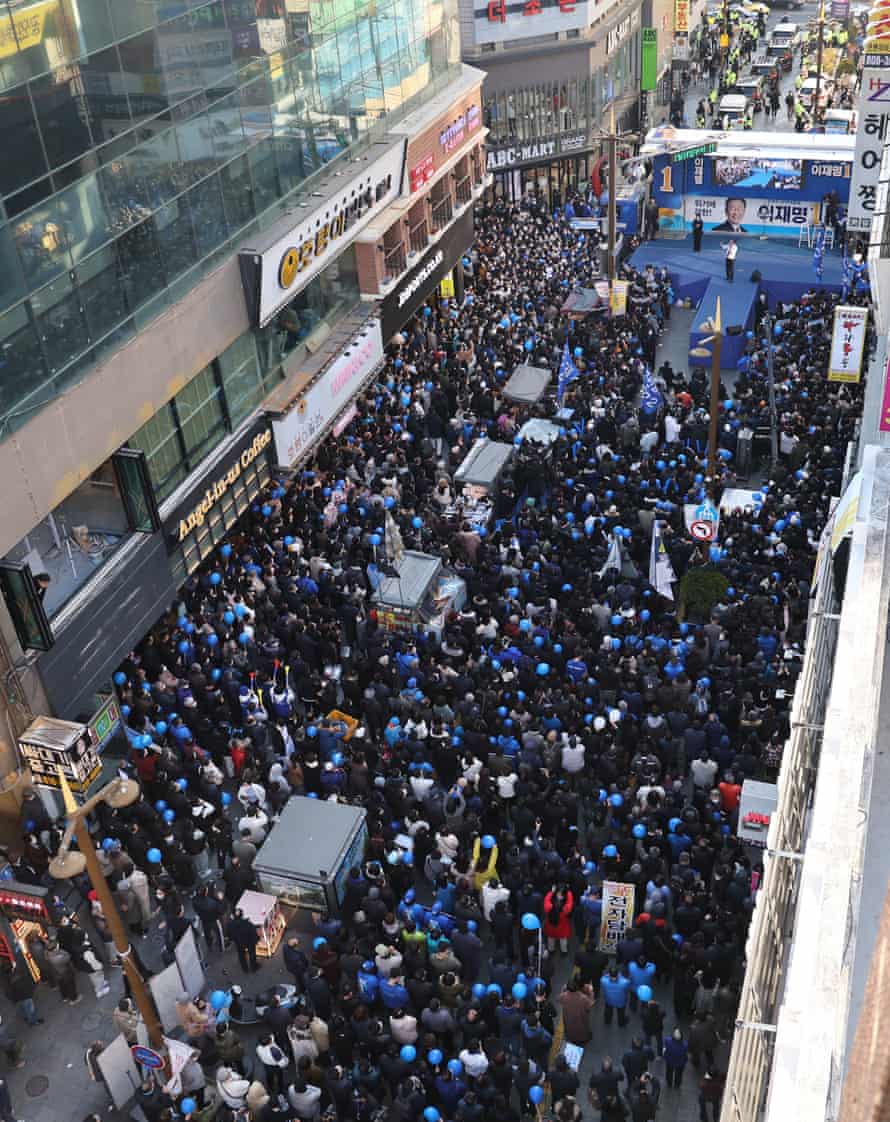Hitler insults, shamanistic intrigue and some colorful language for good measure. It was always going to be difficult for South Korea to match the vitriol surrounding Park Geun-hye’s dramatic removal of her from office five years ago over corruption charges for which she would spend more than three years in prison.
But the campaign leading up to Wednesday’s election for the country’s next president has even given Park’s chaotic exit a run for its money.
The world’s 10th biggest economy is likely to require a period of national reconciliation after weeks of rancour that some have likened to the hit South Korean Netflix series Squid Game, although no one is suggesting the price of failure will come via the barrel of a submachine gun .
Unlike the election’s 2017 iteration, when the left-leaning Moon Jae-in was swept into the presidential Blue House by an electorate enraged by Park’s abuse of power, this week’s vote is still too close to call.
After two years of the Covid-19 pandemic and rising disquiet over the cost of living – against a backdrop of a ferocious gender war – Moon’s Democratic party heir apparent, Lee Jae-myung, is behind in the polls.
The most recent survey, taken a week before Wednesday’s vote, put Yoon Suk-yeol, the conservative challenger from the People Power party, marginally ahead.
The ghosts of Park, the daughter of a former South Korean dictator who in 2012 was elected the country’s first female president, appeared early in the current campaign, when Yoon and his wife were accused of having ties to a shamanistic healer who, in return for advice, had been given a decision-making role.
The claims were particularly damaging for Yoon, who, ironically, had been part of the legal team that pursued Park after her impeachment: her downfall began with revelations that she had allowed a longtime friend, whose late father was the leader of an obscure religious cult. , to influence policy.
For a while, some wondered if spiritualism was again going to help determine South Korea’s political future.

Park aside, Kim Dae-jung, who was elected in 1998, reportedly won after moving the location of his father’s grave on the advice of a shaman. Media reports claimed that if Yoon was elected, his wife would change the location of the Blue House’s guest accommodation, having been told to do so by a shaman.
They are not alone: Yoon Yeo-joon, a former environment minister, suggested it would be easier to count the number of South Korean politicians and business leaders who did not pick up the phone to a trusted shaman before making an important decision.
But by last month, the shamanism row dimmed, amid claims that senior figures in the Democratic party may also have been present at a ritual where Yoon and his wife were reportedly named as guests.
That did not give way to a more civilized campaign, however. Instead, it has been described as a revenge mission by conservatives still loyal to Park, who was pardoned late last year.

“This year’s presidential election has been more overwhelmed by negative campaigning than any other previous election, and the mutual hatred won’t easily die down after the election,” said Choi Jin, the director of the Institute of Presidential Leadership in Seoul.
While voters demand action on skyrocketing house prices in Seoul, stagnant growth and youth unemployment, the two frontrunners have continued to trade insults and fend off allegations of impropriety.
Yoon accused Lee’s party of using the tactics of Hitler and Mussolini, while Lee’s allies described Yoon as a “dictator” and “an empty can”.
Lee, who is being scrutinized over a suspected land development deal, opened his campaign with an apology for a profanity-laden family phone call and has been dogged by rumors of links to organized crime.
Yoon, meanwhile, has made several gaffes, most most recently a “tone deaf” – and now-deleted – tweet about Ukraine that included a tangerine with an angry face drawn on it in an apparent reference to the country’s 2004 Orange revolution.
The Dong-A Ilbo newspaper spoke for many South Koreans when it questioned the candidates’ priorities. “Isn’t our national future too bleak with an unpleasant and bitter presidential election that calls for choosing the lesser of two evils?” it asked in a recent editorial.

Faced with an angry electorate, the worst coronavirus wave of the pandemic and a North Korea that has rediscovered its penchant for ballistic missile tests, it may be that political reality quickly supersedes campaign acrimony as the winner prepares to take office in early May.
Yet despite promises from Yoon and Lee during a recent TV debate not to launch politically motivated investigations against the defeated candidate, many fear the mud-slinging will continue long after the election.
“We now have an election race like Squid Game, but it will be the new president’s responsibility to pull us out of it,” said Cho Jinman, a professor at Duksung Women’s University in Seoul.
Agencies contributed reporting.
www.theguardian.com
George is Digismak’s reported cum editor with 13 years of experience in Journalism